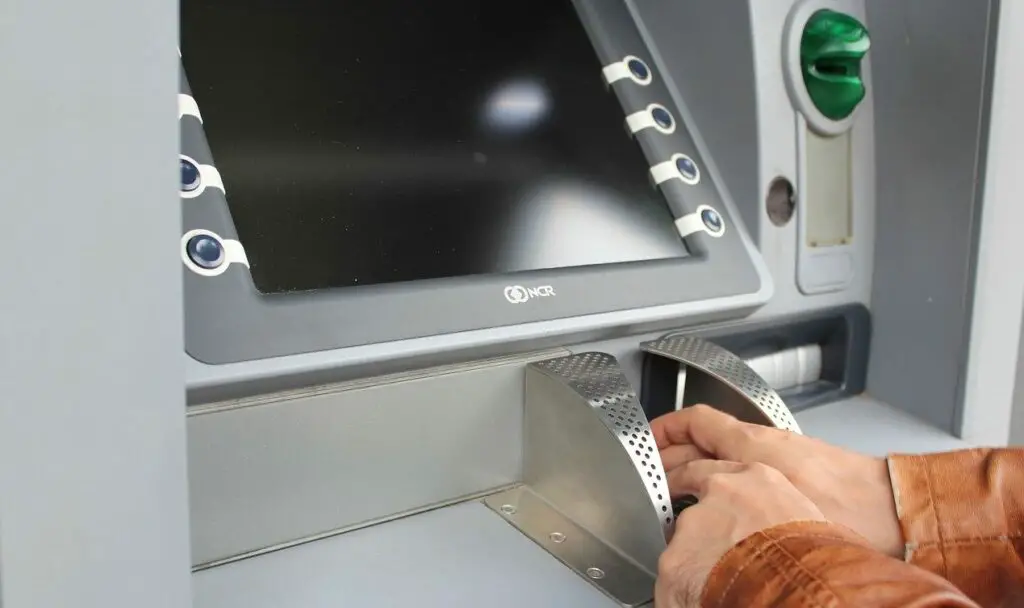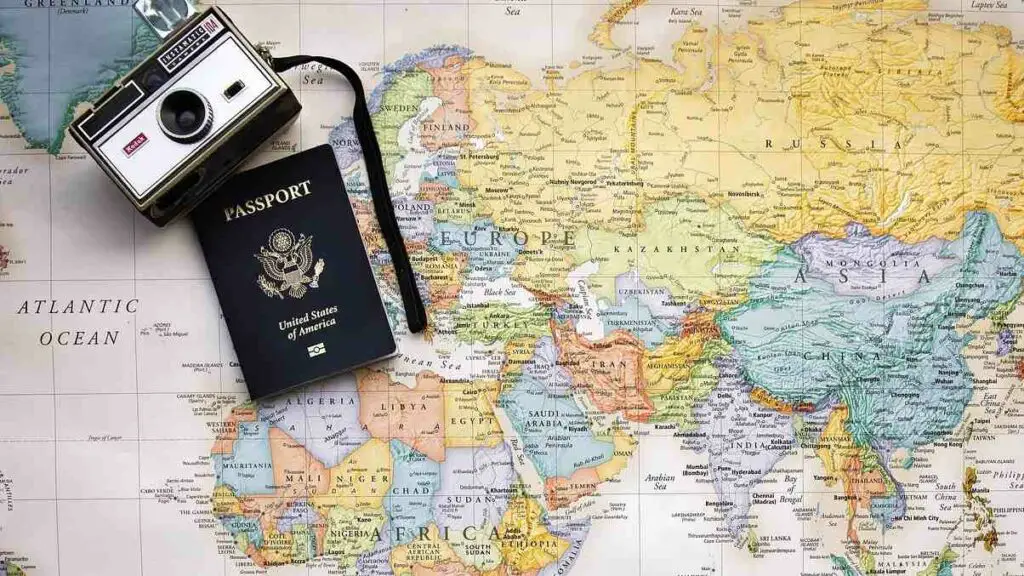Common Travel Scams Avoid Tips And Guidance To Be Safe

Be careful of common travel scams when you travel any country. Some scams include taxi scam, overfriendly strangers scam, currency exchange scam, the picture scam, fake guides scam, and so on. Here, we want to help you stay safe by making you aware of these scams and giving you common travel scams avoid tips.
- List of Common Travel Scams with Common Travel Scams Avoid Tips
- Few More Travel Scams That May Occur In Some Countries with Common Travel Scams Avoid Tips
- Additional Common Travel Scams Avoid Tips and Guidance
- FAQs On Common Travel Scams Avoid Tips And Guidance
- Conclusion On Common Travel Scams Avoid Tips And Guidance
List of Common Travel Scams with Common Travel Scams Avoid Tips
These are the common travel scams that you can find on lots of countries:
Taxi Scam:
Be careful with some taxis. They might pretend to be luxury cars, mess with the meter to charge you extra, or they may say the meter is broken to make you pay more, even hundreds of dollars. They might take longer routes and say they're shortcuts. Also, watch out if they don't give you enough change, saying they don't have smaller bills.
So, ask the driver to turn on the meter and plan your route before getting in. Carry small bills and coins to avoid scams. Use licensed taxis or trusted ride-sharing apps, and always ask for a receipt.
Be careful of some taxis near airports or train stations. Stay away from unofficial taxi lines and only use the official ones. Make sure the meter is working to avoid paying too much.
Too-Friendly Strangers Scam:
While many locals are friendly, warm and hospitable, be cautious of overly nice strangers.
Some people may act too friendly without you asking. Be careful, especially in crowded tourist spots. Use good navigation apps to stay safe.
Currency Exchange Scam:
Be careful when changing money. Some places may cheat you by giving bad rates, fake money, or tricking you. Use trusted places like banks or official exchange offices to exchange money. They are safe and fair.
Street Money Changer Scam:
Be careful with street money changers. They might give fake money or cheat you with tricky math. It's better to exchange money at banks or official places. Always check rates and count your money to stay safe.
Travel Insurance Scam:
Be careful with travel insurance offers. Some might seem cheap but won't cover everything you need. Make sure you get enough coverage for your trip before buying.
So, to stay safe from travel insurance scams, look into insurance companies, see if they're legit, and understand what the policy covers. Don't fall for random offers, compare options from trusted companies, and ask about what's included and what's not.
Buy insurance straight from reliable sites or official sources. Save paperwork and ask trusted folks or consumer agencies if you're unsure about an offer.
The Picture Scam:
Don't take pictures for people you don't know, especially locals. Some might ask you to take their photo and then claim you broke their camera. Also, if photographers offer to take your picture, be cautious. They might ask for money afterward.

Fake Tour Agencies:
Be careful of fake tourist agencies offering super cheap deals. They might promise great trips, but you could end up disappointed and spending more than you planned. Before booking, do some research to make sure the agency is real and trustworthy.
Unofficial Tourist Information:
Watch out for fake tourist info places. They might give wrong info to get you to pay too much or go to certain shops. Stick to real info centers or trusted websites instead.
Unofficial Tourist Police:
In this scam, someone pretends to be a tourist cop and offers to help you, but they might ask for money. Always ask for ID from anyone saying they're a tourist cop. If you're not sure, find and ask the real tourist cops or local police for help.
Fake Guides Scam:
When you visit historical places, be careful of guides who aren't official. They might take you to shops where they get paid if you buy something. They could trick you into buying things you don't want. Some might even offer tours without required permission. They could also ask for a lot of money, saying they can show you special places or that some spots are closed.
To stay safe, only go with guides from trusted places. If someone comes up to you on the street, just say no thanks and find a real guide.
Fake Police Officers:
Watch out for scammers in police dress who say your ID is fake and want money. They may also steal your stuff while checking your ID and stuffs. So, if they approach, ask to show their ID, tell them you want to go to a real police station, or call your embassy.
Fake Immigration Officers :
Be careful of fake immigration officers who target tourists. They might ask to see your passport and then threaten you with fines or other problems. Always ask to see their official ID. If you're worried, find a real police officer or go to a police station.
Fake Wi-Fi Networks:
Avoid connecting to unsecured public Wi-Fi networks or free Wi-Fi that doesn't need a password. Scammers can use it to harm your computer or phone or might use these to steal your personal info.
Before connecting to a Wi-Fi network at a café, store, or public place, verify the login details with an employee. You can also find this information in official literature, like a menu.
Fake USB Charging Ports:
Be careful with public USB ports, especially in places like shopping malls. Scammers might use them to hack your device and steal your info. So, it's safer to bring your own charger and avoid using public USB ports.
Fake Wireless Charger:
Scammer may put fake wireless charger for various devices on public places. When you put your device to charge there, they may steal your device very quickly. So, it's better not to use public wireless charger or at least stay focus when you charging your device there.
Theft when using Slot Machine:
Watch out when using slot machines with built-in phone chargers, as thieves might try to steal your device when you're distracted. So, stay alert, and if a stranger approaches, be cautious, as they may have hidden motives.
Gem and Jewelry Scam:
Be careful at jewelry stores that seem too good, they might sell fake gems at high prices. Some pretend to be dealers offering rare gems cheaply, but they're often fake. So, buy from trusted stores and research before buying.
Street Vendor Manipulation:
When shopping in markets, some vendors may use pushy or manipulative tactics to pressure you into buying or inflate prices. Stay polite but firm, and feel free to walk away if you're not comfortable with such offers.
Street Performer Scam:
While enjoying street performances, be cautious of performers who demand high fees for photos or watching their acts. Set clear expectations beforehand or avoid engaging with them to prevent unexpected expenses.
Street Drug Dealers Scam:
Beware of street drug dealers offering cheap and exotic substances in tourist destinations. These dealers, found in popular areas, may sell low-quality or dangerous drugs, leading to health risks and legal issues. To stay safe, choose licensed establishments and know the regulations, Meanwhile, prioritize safety and avoid deals from street dealers.
Bottled Water Scam:
Be careful when buying bottled water from street vendors, as some bottles might not meet quality standards. There are rumors that certain bottles could contain tap water. To stay safe, purchase bottled water from trustworthy sources such as convenience stores or vendors within established businesses. Always check the seal on the bottle before making a purchase.
Sim Card Scam:
Buying a local SIM card can be essential for staying connected, but some sellers may overcharge or provide SIM cards that don't work properly or have limited or no data. Thus, purchase your SIM card from official retail outlets or established mobile network shops.
ATM Scams:
Strangers may offer help at ATMs, intending to skim your card and steal your PIN. Be cautious while using ATMs. Scammers may place skimming devices to steal your card information. Decline assistance and use your hand to shield the number pad while entering your PIN. Also, opt for ATMs in well-lit, secure locations and avoid quiet area's ATMs.

Bar Friends Scam:
Enjoying the nightlife is great, but be cautious of scams at bars. Some people may invite you for a drink, then surprise you with a high bill. If you refuse to pay, you might find yourself escorted to an ATM by bar staff. So, pick a bar you know, check the prices, and avoid situations that seem too good to be true. Also, choose a bar you like or check the prices before ordering.
The "Closed" Scam
This scam involves a friendly local telling you that the attraction you want to visit is closed for various reasons like a religious ceremony or holiday or for a lunch. They then guide you to a different place, like a shop of a attraction, where they pressure you to buy something expensive or pay a lot for entry.
To avoid falling for this trick, go and check the main entrance or ticket counter yourself. It's even better to check the opening hours before you go online, so you know what to expect. This information is usually available online.
Misleading Free Offerings Scam:
Watch out at restaurants and bars that offer free things like water, appetizers, or nuts. Sometimes, these seemingly complimentary items end up on your bill. Before accepting them, always ask if there's any cost involved.
Bird Poop Scam:
Be wary of a scam where a scammer throws a white substance on your shoulder to distract you. While someone offers to help clean it off, they may pickpocket you. Politely decline assistance from strangers and keep your belongings secure.
Guessing Game Scam:
Avoid street performers' games that attract crowds, as they can be a distraction while accomplices pickpocket you. Stay away from such public spectacles and keep your valuables concealed.
Massage / Bar Tab Scam:
Beware of promises for cheap massages or drinks that can result in inflated bills and threats if you refuse. Always choose trusted places and check prices before ordering.
Charity And Donation Scam
If someone approaches you claiming to collect funds for charities or orphanages, then avoid them. Some may use emotional stories to manipulate donations for personal gain. If you wish to support local causes, research reputable organizations and donate directly to them.
Beware of scammers posing as monks or nuns asking for donations. Remember that legitimate Buddhist monks never seek donations in this way. Ignore such requests and report them to the authorities.
Credit Card Swap Scam:
Protect yourself from credit card scams at restaurants by keeping your card within sight. In restaurants or shops, dishonest employees may use portable card skimmers to clone your credit card information for fraudulent purposes. Thus, always check that the returned card is yours before leaving to ensure it hasn't been switched with an expired one.
Also be careful as the double charge card scam could occur. Some servers might charge your credit card twice for the same order. To protect yourself, consider paying in cash or, if using a card, accompany the server to the payment terminal to ensure a single and accurate transaction.
Fake Tickets Scam:
Watch out for tricksters selling cheap tickets on the streets for attractions or events, who might demand tips for their help. They may also sell fake tickets. To be safe, buy tickets from real places like official booths or trusted travel agents.
Also, be cautious if someone asks for money to enter a place that's supposed to be free. Double-check with official sources or ticket booths before paying anything. Decline offers from unauthorized ticket sellers.
Street Shopping Scams:
Watch out for street vendors selling fake or misrepresented items at seemingly low prices. Stick to trusted stores, check market prices beforehand, and be careful of sellers who may manipulate weights or hide prices to overcharge you. Likewise, always insist on clear pricing and confirm details before buying anything.
Inflated Food Prices:
Certain restaurants increase prices for specific items, especially seafood, during certain seasons. Near tourist hotspots, you might notice that restaurants charge more compared to local eateries. To avoid surprises, always check and confirm prices and portion sizes before you order.
Substandard Deliveries Scam:
Keep an eye out for scams where the items you ordered are delivered in a different or subpar form than what was promised. Document your orders and thoroughly review the products upon delivery.
Accommodation/Hotel Scams:
Be cautious of false advertising when booking accommodations/hotels. Some places may appear charming in ads but disappoint in reality. To prevent this, thoroughly research and read reviews. Also beware of fake listings or upfront payment requests for non-existent properties or accommodations. Work with reputable agents and verify ownership documents.
Some accommodation providers may falsely claim to be affiliated with reputable hotels or resorts, offering discounted rates. However, they may provide subpar accommodations or disappear after payment. Book accommodations through trusted websites or directly with established hotels. Verify the legitimacy of any accommodation provider before making payments.
Some accommodation providers may attempt to charge additional fees for your stay, particularly when traveling in a group. They charge hidden fees that are not clearly disclosed during booking, increasing the overall cost of a stay. Clarify the pricing structure before making any payment to avoid unwelcome surprises.
Overbooked Or Closed Hotel Scam:
Some taxi drivers may try to trick you. They might say your hotel is closed or full and take you to a more expensive one where they get commission. Before you travel, call your hotel to check if it's open. Ask if they have a shuttle and arrange a pickup. If the taxi driver insists your hotel is closed, ask them to take you there anyway, saying you have a reservation.
Hotel Room Phone Scams:
Beware of a scam where you receive a call in your hotel room. Scammers pretend to be hotel staff, often from the front desk, and claim they need your credit card info for verification or security reasons. Legitimate hotels usually don't ask for credit card details over the phone in this way.
Be cautious and avoid sharing sensitive info over the phone. If in doubt, contact the front desk directly using the hotel's official number to verify any requests for personal or financial info.
Hotel Key Card Scams:
Scammers copy hotel key cards to enter rooms without permission. This scam is a big problem because it puts hotel guests' safety and privacy at risk.
To protect yourself, ensure the safekeeping of your key card. If you happen to misplace it, promptly report the loss to the hotel staff, who can deactivate the lost card and issue a new one. Additionally, make it a habit to lock your room door securely from the inside whenever you are inside the room.
Pickpocketing and Bag Snatching:
In busy tourist places, watch out for pickpockets and bag snatchers. Sneaky people may try to take your wallet or valuables from your pockets or bags without you noticing. They might also try to distract you by dropping something or bumping into you.
To stay safe, be smart with how you secure your bags and stay alert in crowds. Also, avoid showing off expensive things and ignore distractions, as well as keep your valuables in different places. Travel with only what you need.
The Guessing Game Scam:
This street scam often involves a group using a guessing game to distract you while someone else steals from your pockets. Stay alert, hide your valuable belongings, and keep them secure to avoid falling victim to this trick.
Misleading Directions Scam:
Sometimes, scammers might tell tourists the wrong way to go, making it confusing and upsetting. To make sure you're heading in the right direction, be careful and check the directions from different sources like maps or phone apps. This extra care will keep you from getting mixed up and help you reach where you want to go without any trouble.
Food and Drinks with Added Substances Scam:
Sometimes, tourists have faced situations where their food or drinks were spiked due to which they have faced theft and other problems. So, to stay safe, always be careful about what you eat and drink. Moreover, it's best to avoid anything given by unknown people.
Motorbike Rentals Scam:
Be careful when renting a motorbike for exploration, as some rental shops may not be trustworthy. They might give you poorly maintained or stolen bikes and then charge a lot for small damages. To avoid this, choose well-reviewed rental shops, take pictures of the bike's condition, and make sure the rental agreement is clear. Don't give them your passport, even if they ask to hold it.
Fake Parking Attendants Scam:
When parking near famous tourist spots, you might come across people pretending to be parking attendants. They'll offer to watch your car for a fee. But, they may not be connected to the actual parking area and might keep your money. Before leaving your vehicle, make sure to check if the parking attendants and fees are legitimate.
The Flirtatious Distraction Scam:
Watch out for scammers who act flirty to distract tourists, especially if you're traveling alone. They might talk to you very nicely to take your attention away and attempt to pickpocket you. So, be alert and make sure to set personal boundaries when talking with unknown people.
Local Woman's Flirtatious Scam:
If pretty local women are giving you a lot of attention, be careful with them. If one invites you out and then disappears after a fun night, you might end up with a really expensive bill. In many situations, they might use drugs and take your stuff.
To avoid this scam, trust your feelings. If things seem okay, have fun and make friends! But if someone acting too friendly, then be careful. If you're unsure, suggest meeting at your familiar hotel or bar. And if they agree, that's good, if not, enjoy your drink and be glad you avoided a tricky situation.
The Sad Story Scam:
Be careful when people approach you with detailed sad stories, like medical emergencies or serious money problems, and ask for money. While some may truly be in need, others might use these stories to trick tourists. Use your judgment when deciding whether to help out.
Street Performer Scam:
Be careful with street performers in tourist areas. Some might try to take your stuff while you're watching their show. Others might ask for a lot of money after their performance. If you want to give money, agree on it before.
Stay away from performers who come too close and keep your stuff safe. Be careful if something strange happens while you're watching.
The Distressed Traveler Scam:
Watch out for people who claim to be distressed travelers, needing money for transportation or emergencies. Scammers take advantage of sympathy by pretending to be stranded tourists and asking for financial help. Be careful when strangers ask for money, verify their story if possible, and consider donating to reputable charities instead.
Fake Designer Goods:
When you're out and about, you might come across street vendors offering fake designer handbags, watches, or sunglasses at very low prices. Buying these counterfeit goods not only supports illegal activities but could also lead to legal problems for you. To stay safe, choose trustworthy stores to buy genuine products.
Fake Luxury Products:
Street vendors may try to sell you fancy-looking things that seem real cheap. But be careful, these things are often fake, and if you buy them, you could get in trouble and have to pay fines.
Therefore, it's always better to get souvenirs from real stores you can trust. If a deal sounds too awesome, it's likely not true.
Carry-My-Bag" Scam:
Be wary of "Carry-My-Bag" scams where someone, even a supposed friend, asks you to transport a bag across borders. They might promise payment or claim it's for their family, but it could contain illegal items like drugs.
So, never carry a bag for someone you've just met, and if it's for a trusted friend, ensure you know what's inside. Even if it's not drugs, it might be something restricted at your destination.
Personal Information Scam:
Refrain from sharing personal details on unfamiliar websites due to prevalent online hacking risks. Additionally, exercise caution when using credit cards online or at suspicious locations; verify the legitimacy before making transactions to safeguard your financial information.
Furthermore, never share original documents and refrain from disclosing personal information via email or phone to prevent identity theft. In case of suspicion, promptly contact your bank to ensure security.

Few More Travel Scams That May Occur In Some Countries with Common Travel Scams Avoid Tips
Now you know about common travel scams, here are few more travel scams that you may encounter in some countries:
Tuk-Tuk Scam:
Locals appear friendly and persuade tourists to hop into their colorful three-wheeled vehicles, named Tuk-Tuk. While some tuk-tuk rides are genuinely enjoyable and reasonably priced, others deceive travelers by taking them to expensive shops or attractions, all to earn commissions. Tuk-Tuk drivers may ask for toll payments, sometimes without proper authorization.
To avoid falling victim to this scam, clearly state your destination and firmly decline any unplanned stops. It's important to agree on the fare upfront and ensure the driver uses the meter. Furthermore, be cautious if a driver offers surprisingly low prices or insists on taking you to specific places. Also, check the legitimacy of toll charges and negotiate when necessary.
Moped, Jet Ski or Water Sports Scams:
When you rent a moped or jet ski or partake on vacation, be careful of scams. Some owners may accuse you of damaging the equipment and demand money for repairs, holding your passport until you pay.
Before accepting a rental, thoroughly inspect for existing damage and alert the owner to any issues. Take pictures or videos at check-in and secure the equipment overnight in a protected area. Be cautious of potential tampering or vandalism. Check customer reviews of rental services to avoid scams.
Minivan Misadventures:
Minivan drivers might drop tourists off at inconvenient locations and collaborate with tuk-tuk drivers, leading to costly rides. If you can, request to be dropped in the city center. If that's not feasible, explore alternatives like motorbike taxis or agree on a reasonable tuk-tuk fare before starting the ride.
Overpriced Boat Rides:
Beware of overpriced boat rides where operators may charge tourists excessively for river excursions, taking advantage of their limited local knowledge. Prior to deciding, inquire about rates from various boat operators, and consider seeking recommendations from fellow travelers for a more informed choice.
Friendship Bracelets and Rose Scam:
Be careful of strangers offering free gifts like friendship bracelets or flowers. They might ask for money later or try to steal from you while you're distracted. If you refuse, they might cause trouble. So, it's best to say no to unexpected gifts, keep away from street vendors, and be wary of strangers approaching you suddenly.
Avoid 'Happy Restaurant' Drugs:
Be careful with restaurants that might offer food or drinks containing illegal substances, as it can cause serious problems. To stay safe, it's best to avoid such places entirely.
Kids as Bait:
The "Kids as Bait" scam typically involves children approaching tourists and offering assistance, such as providing directions or help with something. Once the tourists accept the help, the children may demand payment for their services, creating an uncomfortable situation.
To avoid falling victim to this scam, it's advisable to politely decline any unsolicited assistance from children and firmly stand by your decision, ensuring you are not pressured into making any payments.
Beach Theft Scams:
Scammers target tourists by stealing unattended valuables on the beach when they are enjoying. To stay safe, don't bring valuable items to the beach. If needed, use lockers or ask someone reliable to watch over your belongings. Always keep an eye on your things to prevent theft.

Traffic Police Bribes:
This situation involves corrupt traffic police who might come up with fake reasons to fine you, expecting you to pay them money. To stay safe, instead of stopping immediately, you can try using alternative routes such as making a U-turn or taking side streets. Following the local traffic laws can also help reduce the chances of dealing with dishonest police officers.
Drug Deal Scam:
Scammers might offer you drugs in a popular tourist areas specially in vibrant party areas. If you say yes, a real police officer shows up and says you'll be arrested unless you pay a fine right away, which is basically a bribe. If you're caught, you might end up paying the bribe instead of going to jail. To stay safe, it's best not to get involved in such situations or agree to anything illegal.
Full Moon Party Ticket Scam:
Exercise caution when it comes to purchasing Full Moon Party tickets, as there have been reports of fake tickets being sold in the area.
To stay safe, we advise you to purchase your tickets either at the official entrance or from reputable sellers. When you do buy a ticket, make sure to verify its authenticity. Additionally, remember that the official entrance is the most reliable source for tickets, so consider heading there first.
Street Gambling Scam:
If a friendly local invites you to join an unplanned street gambling game like laying a card game (also known as three-card Monte) or hiding a ball in a cup and someone guessing where it is and winning money, henceforth asks you to bet money on such games, be careful. These games are often rigged, and you might lose lots of money.
To stay safe, politely say no to invitations for street gambling. If you're interested in trying your luck, choose well-known casinos or licensed gambling places instead.
Child Vendor Deceptions:
In tourist areas, some dishonest vendors use vulnerable children, who are often refugees or migrants, to gain sympathy from tourists. They sell small items or ask for money. It's best to avoid interacting with these child vendors. Refrain from buying things or giving money directly to them. If you want to make a positive impact, consider supporting local charities during your trip.
Gold Ring or Valuable Thing Found Scam:
Be careful if someone you don't know claims to have found valuable items like gold rings and tries to sell them to you at high prices, especially by making up emergencies. Don't rush into buying things from unknown street vendors. Be cautious if strangers pressure you to buy expensive items. If they mention an urgent situation to push the sale, be skeptical. Hence, it's safer to say no to such offers and stick to your original plans.
"You Have the 'It' Factor" Scam:
Beware of the "You Have the 'It' Factor" scam where scammers falsely claim to recruit individuals for TV shows or modeling offers, often targeting tourists, including children. Ignore unexpected offers from strangers and avoid sharing personal info with people you don't know or trust.
Deceptive Club Pass Scam:
The "Deceptive Club Pass Scam" typically involves scammers selling passes or tickets to exclusive clubs or events with the promise of special perks. However, these passes often turn out to be fake or invalid, and individuals end up paying for a service or access they never receive.
To avoid falling victim to this scam, it's crucial to purchase tickets or passes from reputable sources and be cautious of deals that seem too good to be true.
Fake Celebrity Sightings:
Be cautious in tourist-heavy areas where people may pretend to be celebrities and offer to take photos with you for a fee. To distinguish real from fake, don't be easily fooled by celebrity sightings. Always ask for credentials or check with venue staff to confirm if a celebrity appearance is legitimate.
Bait-and-Switch at Market:
When you're checking out lively markets, watch out for a trick called bait-and-switch. Sellers might tempt you with a cheap price for something, but when you want to buy it, they might give you something not as good or raise the price. So, make sure to agree on what you're getting and how much it costs before buying. If the seller tries to change things, stick to what you agreed on or just leave.
Temple Touts: False Holy Guides
In holy places, some fake guides try to trick visitors. They pretend to be spiritual guides and make up stories to attract tourists. Once they've got your attention, they ask for a lot of money for their so-called wisdom. It's hard to figure out what's real in this spiritual maze.
To avoid this, do some research before you go. Meanwhile, choose official guides if possible, or explore on your own to avoid being misled by fake guides.
The Temple Donation Pressure:
At some temples, you may encounter individuals who insist on donations or fees for entry, blessings, or ceremonies. While donations are voluntary, these individuals can be quite persistent. Research temple customs and entry fees in advance to know what to expect.
The Misleading Dress Code Scam:
Outside certain religious sites, scammers may approach tourists and claim that their attire doesn't meet the dress code, even if it does. They'll suggest purchasing or renting specific clothing items at high prices. Verify dress code requirements by yourself and politely decline their offers.
Rickshaw Scam:
Auto-rickshaw drivers might try to charge tourists too much. They could ask for fixed rates, higher fares, or take longer routes to make the fare higher. To protect your money, insist on using the meter or agree on the fare before you start. Monitor routes via GPS and confirm your destination with the driver.
The Begging Syndicate:
Be cautious of organized groups that beg professionally, taking advantage of tourists' kindness. Some scammers take advantage of children or individuals with physical disabilities to make you feel sorry for them and give them money. They do this on the street, and it works because it tugs at your emotions.
It's extra risky because once they see where you keep your money, their friends might try another trick, like the Staged Distraction scam, to take your money Use your judgment when approached by beggars and think about supporting local charities instead.
Cheap Tourist Restaurants/No Menu Scam:
Restaurants close to popular tourist spots might have menus in many languages, but they could charge too much for average food. To make sure you have a good dining experience, check reviews, plan where to eat ahead of time, and be careful when choosing places that aren't well-reviewed or verified.
Lost Map Tourist Scam:
Watch out for scammers who come up to tourists with a map, pretending to be lost and asking for directions. While you're busy helping, someone else might try to pickpocket you. Be careful when strangers with maps approach you and make sure to keep your belongings safe.
Deaf/Dumb Petition Seekers:
Be wary of scammers posing as deaf or mute individuals asking for signatures on fake petitions. While you're focused on signing, they might try to steal from your pockets or insist on cash donations for made-up charities. Thus, stay alert and politely decline if approached this way, as these situations can escalate rapidly. It's best to walk away.
The CD Scam
This scam works by scammers giving you a seemingly harmless CD. Their sneaky plan is to catch you off guard. While you're holding the CD, they quickly sign it without your permission and then ask you to pay for this "signed" item.
If you come across this scam, firmly state that you were just holding the CD and don't owe them anything. If needed, involve law enforcement to handle the situation.
Subway Card Scams
Be cautious when buying Subway Cards for the subway system from individuals near subway entrances. Scammers sometimes sell expired or used cards, leaving you with unusable fare. Therefore, purchase Subway Cards from authorized vending machines or official vendors.
The People Gathering Scam:
This scam usually happens when you're on a bus or subway, and a group of people surrounds you. They act like they're just trying to find space and adjust, but some are sneaky. While they distract you, others might go through your bags and take your stuff.
If people are trying to talk to you or get your attention while it's getting crowded, ignore them. Watch your stuff closely. Put your valuable things in a bag with a zipper and keep it close, or hold it on your lap. Keep your hands near the zipper to make sure everything stays safe.
A Cup of Tea Scam:
This scam usually starts with a friendly local chatting with you and inviting you to join a traditional tea ceremony or get a free cup of tea nearby. They might charge you a lot for just watching the tea-making or they could also push you to buy something from a shop.
To avoid falling for it, research and book these experiences instead of accepting offers from friendly locals. Check reviews and don't get lured in by seemingly friendly gestures.
The ‘Paper Move’ Beggars Scam:
Watch out for scammers who pretend to be deaf and ask for money with notes. They might use this as a trick to steal from you. Be careful with any notes you get and don't give money to people you don't know, especially in busy tourist places.
Romance Scam:
A Romance Scam is when someone you meet online pretends to like you a lot and talks to you for a long time. Then, they might make up stories about needing money urgently, like for a sick family member or to travel to meet you.
If they ask you to send money to a different name or overseas, that's a warning sign. If you feel something is not right, stop talking to them and tell someone you trust. You can also report it to the ACCC to help others stay safe from these kinds of scams.
Visa Scam:
Be cautious of visa scams, especially those promising 'guaranteed' visas . Scammers may impersonate government officials or create deceptive websites. To safeguard against fraud, verify visa service agents and read travel advice as well as apply for your visa through the embassy-approved links to stay safe.
Be careful if someone calls saying they're from 'The Immigration Bureau' and talks about a problem with your visa. These calls are not real. Don't keep talking to them, and if you're worried about your visa, call the official Service Centre directly. These fake calls are trying to find people for future scams, where they might try to trick you into sharing personal or financial information. Stay watchful and report any calls that seem suspicious to keep yourself safe.
Social Media Scam:
People around the world use social media, and scammers love to take advantage of that. One tricky scam happening on Instagram involves cryptocurrency. Scammers might take over someone's social media and pretend to be them. They tell followers to message a "cryptocurrency mentor" who supposedly made them a lot of money.
The scammer then tricks followers in different ways: asking for screenshots of your cryptocurrency platform (which reveals a lot about you), making you buy digital currency and send it (but you won't get it back), or convincing you to change your login details (so they can access your personal data). Be careful and don't fall for these tricks!

Additional Common Travel Scams Avoid Tips and Guidance
Here are few more travel scams avoid tips and guidance for you:
1. Get a Local SIM Card: Common Travel Scams Avoid Tips
Start your trip by getting a local SIM card. It'll help you use your phone for maps, checking info, and calling for help if you need it. Make sure to download useful apps like maps, ride-sharing, and translation tools before you go.
2. Plan Ahead: Common Travel Scams Avoid Tips
Before you go on your trip, find out about places to visit, how to get around, local rules, and things to watch out for. Make a plan with maps, directions, and contacts for where you're staying and who to call if you need help. Having a good plan helps you avoid scams.
3. Verify Info: Common Travel Scams Avoid Tips
Don't trust info from people you don't know, especially if they approach you first. Instead, use guides, official sources, or ask your embassy for accurate details about places, events, and local stuff.
4. Learn the Local Rules: Common Travel Scams Avoid Tips
Know the rules of the place you're visiting so you understand what you can and can't do. This helps you avoid getting tricked by scammers who might try to use your lack of knowledge against you.
5. Learn Basic Local Language: Common Travel Scams Avoid Tips
Knowing a few easy local words can keep you safe from common travel scams. Saying "hello" and "thank you" in local language can help you connect with locals and signal that you're not an easy target for scams.
6. Stay Confident: Common Travel Scams Avoid Tips
Scammers look for tourists who seem unsure. Act confident, even if you're not sure where you are. Say "no thanks" firmly to offers or invitations from strangers you don't trust.
7. Use Trusted Transportation Apps: Common Travel Scams Avoid Tips
When you need a ride, go for popular ride-sharing apps. They show you how much your trip will cost and tell you about your driver.
8. Keep Valuables Secure: Common Travel Scams Avoid Tips
Get a special bag or pouch that's hard for thieves to steal from. Also, keep important things like your passport and travel insurance in a safe place.
9. Blend In with the Locals: Common Travel Scams Avoid Tips
Wear simple clothes, following the local customs and avoid showing off valuables. This helps you blend in with locals and not attract unwanted attention. But still, be careful who you trust, as not everyone is friendly.
10. Be Sure Before Drinking or Smoking: Common Travel Scams Avoid Tips
Before drinking or smoking in public places, make sure it's allowed. Some places may have strict rules, and breaking them could get you in trouble. Avoid buying from street sellers, as their products might be low quality and cause problems. If unsure, ask locals or other travelers for advice.
11. Secure Your Place to Stay: Common Travel Scams Avoid Tips
When booking a hotel, use trusted websites or the hotel's official site. Check your booking info carefully and keep a copy of your reservation. This helps avoid any issues when you get there.
12. Avoid Promotional Illusions: Common Travel Scams Avoid Tips
Be careful on social media. Some offers for free stuff might ask you to share or comment to enter. But watch out! Some of these are tricks to get more likes and followers. Always double-check these offers and make sure they're genuine before you join in.
13. Maintain a Low Profile: Common Travel Scams Avoid Tips
While traveling, avoid drawing attention to yourself. Use simple bags and only carry what you really need. Keeping a low profile can help you avoid getting noticed by scammers.
14. Use Trusted Services: Common Travel Scams Avoid Tips
When booking tours, transportation, or services, opt for well-established and reviewed providers. Read online reviews, consult guidebooks, and ask fellow travelers for recommendations.
15. Use Trusted Currency Exchange: Common Travel Scams Avoid Tips
Only exchange your money at banks or official currency exchange places. Avoid using ATMs that aren't from major banks, as they might charge you high fees, or they be the fake or skimming ones.
16. Be Wary of Tempting Offers: Common Travel Scams Avoid Tips
Don't easily trust things like super cheap prices, friendly strangers, or too-good-to-be-true deals. Take a moment to think before saying yes, as these could be scams to trick you. Always double-check if something seems fishy before agreeing to it.
17. Check the Source: Common Travel Scams Avoid Tips
When you see a cool deal online, make sure it's from a genuine place. Look for contact info and see if they seem real. Genuine places give clear details. If it seems too amazing, search for more info to make sure it's not a trick.
18. Share Your Itinerary: Common Travel Scams Avoid Tips
Make sure a close friend or family member knows your travel plans. That way, someone knows where you are in case you need help.
19. Negotiate Wisely: Common Travel Scams Avoid Tips
Negotiate prices respectfully while shopping at local markets and shops. If you feel pressured, don't hesitate to walk away.
20. Stay Updated: Common Travel Scams Avoid Tips
To avoid troubles, it's good to learn about local scams and hear from other travelers. Ask for tips and suggestions from people who have been there before.
21. Trust Your Instincts: Common Travel Scams Avoid Tips
If something feels suspicious, trust your instincts and consider other options.
22. Report Suspected Scams: Common Travel Scams Avoid Tips
If you think something fishy is going on or you're not sure, tell the local police or your embassy. This helps keep others safe and stops the scammers.

FAQs On Common Travel Scams Avoid Tips And Guidance
What are common travel scams I should watch out for?
Common Travel Scams include fake tourist info centers, unauthorized guides, street vendors offering counterfeit goods, individuals claiming attractions are closed, taxi scams, ATM scams, travel insurance scams, and many more.
What are the Common Travel Scams Avoid Tips if someone approaches me with a suspicious deal or offer?
If someone comes to you with a deal that seems strange or too good to be true, it's a good idea to check if they are trustworthy. Also, look closely at the details, double-check the info from official sources or places you trust. Moreover, don't make quick decisions; take your time and do some research before deciding. Also be aware of Common Travel Scams Avoid Tips to avoid such situations.
What are the Common Travel Scams Avoid Tips if I encounter a scam while traveling?
Report the incident to local authorities or your embassy, and stay aware to prevent further fraudulent activities. You shall also learn Common Travel Scams Avoid Tips beforehand to take proactive actions.
Are there specific Common Travel Scams Avoid Tips to prevent common travel scams?
Few Common Travel Scams Avoid Tips to prevent travel scams are: research common scams in your destination, be cautious of unsolicited offers, research prices beforehand, use reputable transportation services, and always verify info before making payments or commitments, and so on.
Conclusion On Common Travel Scams Avoid Tips And Guidance
It's essential for travelers to be well-informed about potential scams and common travel scams avoid tips and guidance to take proactive measures and protect themselves. By staying vigilant, researching prices, following local laws, and using common sense, they can enjoy the time in fascinating destinations without falling victim to scams.
Remember, preparation and awareness on are the best allies in ensuring a memorable and trouble-free travelling.
Feel Empowered to Explore Safely:
We hope this "Common Travel Scams Avoid Tips And Guidance" has informed you about common travel scams worldwide, making you a more aware traveler. Knowledge is your best defense against scammers, so stay vigilant and take necessary precautions for a safe and enjoyable journey. Your safety and enjoyment are our top priorities.
Share Your Insights On "Common Travel Scams Avoid Tips And Guidance":
We believe that sharing knowledge is a powerful tool against scams. If you've come across any additional common travel scams not covered here or common travel scams avoid tips that we have not mentioned earlier, then we'd love to hear from you. Your insights could assist fellow travelers in avoiding similar pitfalls. Please leave a comment below to share your experiences and knowledge.
Share and Spread Awareness On "Common Travel Scams Avoid Tips And Guidance":
Awareness is key to preventing scams. If you found this article informative and useful, we encourage you to share it with your friends, family, and fellow travelers. Together, we can create a community that is well-informed and equipped to enjoy their travels without falling victim to scams.
Join the Conversation On "Common Travel Scams Avoid Tips And Guidance":
Feel free to join the conversation and share your thoughts on common travel scams, travel experiences, and common travel scams avoid tips in the comments section below. Your insights could offer valuable perspectives and advice to others setting out on their own journeys.
Your Voice Matters:
At de-reviews.com, we are committed to promoting safe and enjoyable travel experiences for everyone. If you have valuable information about tourism scams from around the world, don't hesitate to reach out to us via email at admin@de-reviews.com. Your contribution could help us further educate and protect fellow travelers.
References
With preparation and awareness, you can have a memorable and trouble-free trip!

